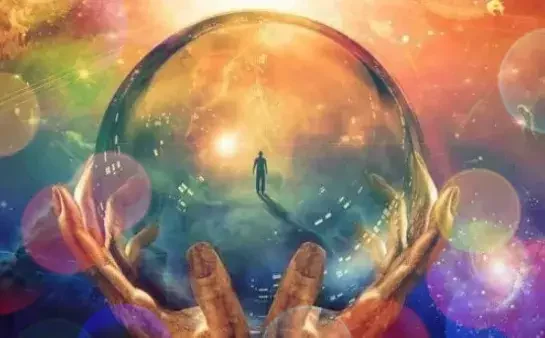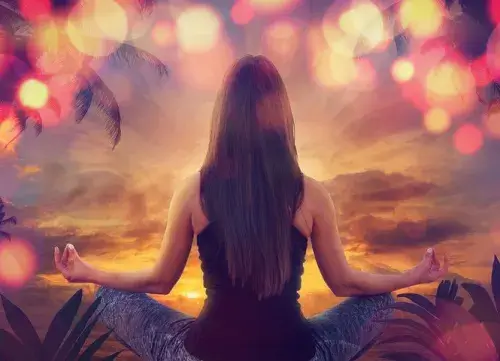Your Karma. The word “karma” often sounds simple, almost deceptively so. Yet, it conceals a profound meaning that permeates the entirety of our life’s journey.
We frequently hear phrases like “improve your karma” or “don’t mess with your karma” in everyday conversation.
But what does that truly mean?
Is karma merely a mystical concept, or is it something tangible that influences our daily existence and shapes our destiny? This exploration aims to answer these questions by drawing upon various sources and contemplations on the nature of karma, guiding you toward a deeper understanding of this universal principle.
We’ll delve into its fundamental laws, explore its practical implications, and discover how cultivating a mindful approach to life can lead to profound balance and fulfillment.
Your Karma in Modern Understanding.
At its core, karma is the law of cause and effect or a dynamic force that encompasses our past, present, and even future experiences. It’s an enduring truth: what we sow today is what we will inevitably reap tomorrow.
The concept of karma is not exclusively tied to any single religion or spiritual tradition; rather, it is a universal principle that governs the very fabric of the cosmos.
The word “karma” itself, derived from Sanskrit, literally means “action.”
Every thought we conceive, every word we utter, and every action we perform generates a specific energy that is released into the universe.
This energy, far from dissipating, is an indestructible force that eventually returns to us, often in a  modified, transformed, or even amplified form.
modified, transformed, or even amplified form.
We cannot escape the consequences of our actions. If someone acts out of revenge, driven by fleeting emotions, their karma will undoubtedly yield unfavorable outcomes.
To ignore these universal laws, regardless of whether they were formulated by ancient philosophers or are inherent to the Universe itself, is to do so at our own peril.
To truly grasp and harness the power of karma, one must first endeavor to understand its fundamental principles the very will of the Universe in action.
The Fundamental Laws of Karma.
The Universe’s Will in Action.
The laws of karma are universal principles, often referred to as the “Golden Rule” across numerous cultures and religions: “Treat others as you wish to be treated.” However, the karmic laws extend far beyond this simple adage, delving into a much deeper and more comprehensive understanding of existence.
In Eastern philosophy, the law of karma is often articulated as follows: “Every event will be followed by another, which will be caused by the first. The second will be either good or not, depending on its direct and indirect connection to its underlying cause.”
This profound statement implies that each of us is ultimately responsible for our own actions. This responsibility can manifest in our current lives or even in future incarnations.
Thus, the actions we undertook in previous lives resonate into our present, shaping the events and circumstances we encounter today.
Buddhism further expands upon this understanding, incorporating not only spoken words or performed deeds but also our intentions and thoughts.
We, as conscious beings, decide what we wish to feel, say, or do. Every decision we make creates a specific impact on our life’s journey. These decisions, whether positive or negative, constitute our karma.
It is crucial to understand that karma should not be perceived as a punitive punishment for past transgressions, but rather as a profound learning process.
Karma serves to teach us to live in unity with all people and elements of nature, to comprehend our rightful place within the intricate tapestry of the universe. It is an invaluable opportunity for continuous self-improvement and growth.
Essential Principles of Karma and the Path to Understanding.
To better grasp the intricate workings of karma, let’s explore its most significant laws:
The Law of Neutrality.
Much like the law of gravity dictates that whatever goes up must come down, the Law of Neutrality applies to absolutely everyone without exception.
The Universe is inherently neutral. It holds no “favorites” or “disliked ones.” There are only divine beings created by the Creator, and the Creator loves all these creations equally, deeply, and completely.
In this context, “Creator” can be interpreted in various ways, from the scientific concept of the “Big Bang” to a specific divine entity, depending on individual worldview.
The essence remains unchanged: the Universe operates on objective, neutral principles, free from bias or prejudice. This neutrality is the bedrock upon which all other karmic laws are built, ensuring a fair and impartial system of cause and effect.
The Law of Agreement.
One of the most fundamental truths of karma is the notion that each of us, prior to our embodiment in this world, has agreed to experience everything that happens to us.
This profound concept implies that the Universe operates on a simple premise: to balance past karma, everything unfolds according to a prior agreement, based on the karmic equality of all parties involved.
The purpose of our reincarnations is to show us what love truly is and what it is not. In this dualistic world, human knowledge is formed on the basis of opposites: “good-bad,” “problem-solution,” “light-dark.”
We are destined to walk this “divine loop” until we achieve the highest level of love, joy, and consciousness. There are no saints without a past and no sinners without a future; we are all continually learning and growing, evolving through our experiences.
This agreement isn’t a rigid predetermination but rather a framework for our growth, allowing us to learn specific lessons and evolve our souls.
The Law of Consequence.
Everything we have done to other people in previous lives, or what we do in the current one, shapes the karmic agreement for our present and future.
Consciously demonstrating love and completeness toward ourselves and others instantly changes our existing and future karmic agreements, filling them with new energy and possibilities.
This is the incredible ability to rewrite our future scenario by making conscious and positive choices in the present moment. Every ripple we create has a consequence, and understanding this allows us to intentionally create beneficial ripples.
The Law of Balance.
The essence of life’s lessons lies in achieving balance. Imbalance significantly influences the reincarnation cycle. Balance is achieved according to this principle: we are reborn into that which we direct our hatred or resistance.
We can truly understand something only when we ourselves become a part of it and cease to condemn it, react negatively to it, or harbor unrealistic expectations.
Only through acceptance and understanding can we truly free ourselves from past patterns and find equilibrium. This law emphasizes that life constantly seeks harmony, and any deviation from it will create a compensatory force to restore it.
The Law of Attraction.
The thoughts we constantly repeat and the feelings we consistently experience attract these very same thoughts and emotions, which are designed to manifest our desires. What we think and experience more frequently becomes stronger and more often, intentionally or unintentionally, our karmic belief.
The more attention we give to these thoughts and emotions, the stronger they become, forming our karmic beliefs, which in turn generate our thoughts, perspectives, guide our actions, and ultimately shape our results. This principle highlights the power of our internal world in creating our external reality.
The Law of Connection.
We forge connections with people, participate in events, and utilize opportunities that can help fulfill our desires.
To “allow” means to be open to everything that enters our lives, to believe that it is necessary to openly state our desires. If we undertake consistent and purposeful actions, our desires will indeed become a reality.
Everything around us is energy, and the Universe is constantly expanding, moving from lower to higher vibrations.
Change and development are inevitable, as energy only grows. The expansion of the Universe occurs through a process often perceived as chaos because it involves reorganization and the establishment of order in an endless cycle of change and growth. This dynamic process ensures continuous development and new connections.
The Law of Development.
Our internal map of reality is constantly changing, reflecting our personal state of growth and development. This map is continuously refined as our consciousness evolves.
Development is an ongoing process that allows us to learn life’s lessons at our own pace, through reincarnation. If we believe that everything that happens to us is “normal,” we live by a “standard” karmic principle, without considering deeper implications or potential changes.
Unleashing our potential comes from a conscious decision to take control of our karma, assuming full responsibility for our lives and consciously deciding to always act in accordance with the principle of love and kindness.
This ongoing evolution is not about reaching a final destination, but about the continuous journey of becoming more enlightened.
The Law of Opportunity.
In the world, there are no limits to the joy we can experience and what we can create. This is because the power that can guide us and what we desire comes from within. Every moment carries with it new opportunities.
Everything we can dream of, everything we can do, everything we can be, and everything we can have in this Universe of opportunity is our birthright as divine creations.
Karma begins and ends with love. Karma was created to guide our soul during the transition to reincarnation, on our journey through the Universe. It ends precisely at the moment when our ability to love unconditionally has been brought to perfection.
The sole purpose of karma is to lead all of us to a state of divine love, happiness, and consciousness. This final law ties everything back to the ultimate goal of karmic evolution: unconditional love.
Is Karma Simply a Code of Conduct for a Righteous Person?
Delving into the laws of karma, it becomes clear that they are deeply intertwined with ethics and morality. In truth, if we examine these principles without the veil of mysticism, they truly reflect a code of conduct for an honest, responsible, and conscious individual.
When we do good, we receive good. When we sow negativity, we reap negativity. This is a universal principle that operates independently of belief or religious affiliation.
So, the answer is yes, to some extent, karma is a code of conduct for a righteous person, but with one crucial difference. Karma is a dynamic system that reflects not only our physical actions but also our thoughts, intentions, and internal state.
It is a continuous lesson that encourages us to improve ourselves and move toward a higher level of consciousness.
Improving your karma means not only performing good deeds but also cultivating inner peace, compassion, and mindfulness. It means taking responsibility for your life and its consequences, recognizing that every choice shapes your future.
Ultimately, it means understanding that perfecting your capacity for love is the path to true freedom and happiness. May your journey toward harmony and balance be well-guided and fulfilling!
Have a Great Day!





